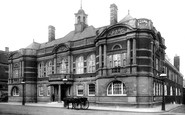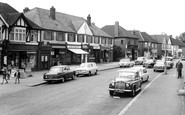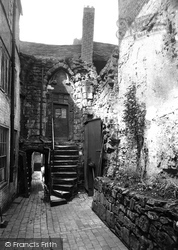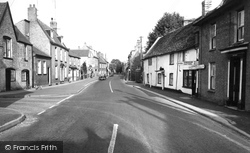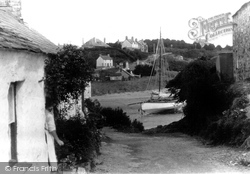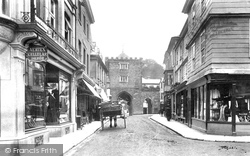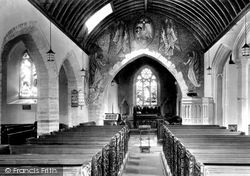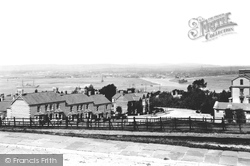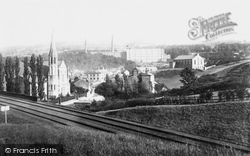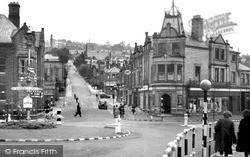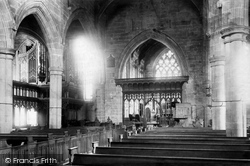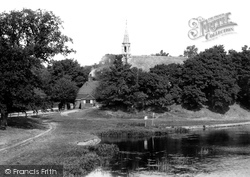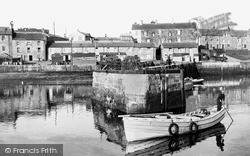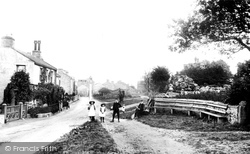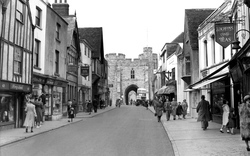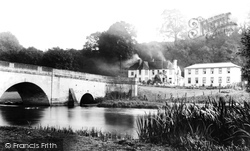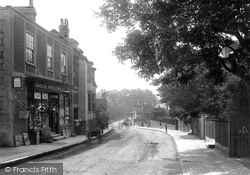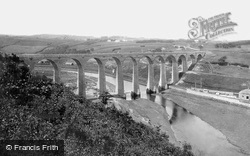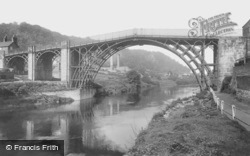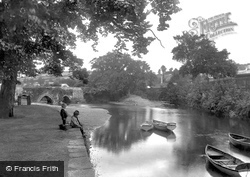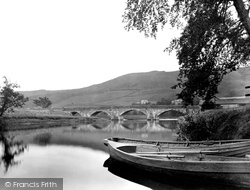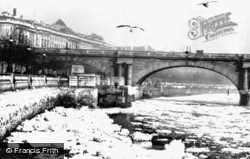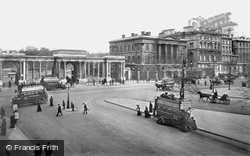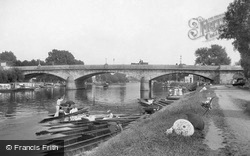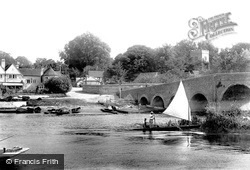Places
Sorry, no places were found that related to your search.
Photos
5 photos found. Showing results 181 to 5.
Maps
83 maps found.
Books
Sorry, no books were found that related to your search.
Memories
1,127 memories found. Showing results 91 to 100.
Barrow Hill
My father bought the land on Barrow Hill, and built a house called Carrick Lodge (1961). I am not sure that everyone at the bottom of the hill were totally impressed with the house although it did not effect the view. We did have ...Read more
A memory of Worcester Park in 1946 by
Bath Time
My memories of bath times goes back to when Mum would once a week fill the copper again, in the corner of the scullery. The copper was built of bricks if I remember, with a tin liner, below was an opening, where you would light a fire ...Read more
A memory of West Ham in 1949 by
Battersea Dogs Home
I don't really have much of a memory of Battersea but lived there with my mom and her friend Charlie, who I believe was a big man and very loud and kind. He had three children; Carolin, Marylin but I forget the boy's name. I ...Read more
A memory of Battersea in 1972
Battersea Town Hall
The impressive entrance on Lavender Hill actually led into the Council Offices, where I started work when I left school in 1966. At that time they had changed very little since their Victorian origins; there was a grand ...Read more
A memory of Battersea in 1966
Beach
I was born in Torquay in June 1954 in Shrublands Hospital (can anybody remember that hospital, it was in the Warberrys). I left Torquay when I was 23 and came to live in London, my heart is still there. Who knows, I might retire back there. ...Read more
A memory of Torquay in 1860 by
Beechholme
I grew up in the Children's Home, Beechholme that was only a few yards from Nork, where children from the home went to spend their pocket money. I lived at Beechholme from 1956 to 1962. I spent much of my time in the home wandering over the ...Read more
A memory of Nork by
Beginnings
My parents moved from Pentire to Crantock when I was about 3 and Crantock is certainly ingrained in my memory as being my first home. My mother had taken a position as housekeeper to a Dr Nicholas and with it came Rose Cottage. My ...Read more
A memory of Crantock by
Belgians In Birtley.
Few people are aware of the part Birtley, Tyne Wear, (part of County Durham in those days ) played in the Great War of 1914 - 1918. Belgium in 1914 was occupied by the German Army, and thousands of refugees fled to Britain where ...Read more
A memory of Birtley by
Bensham In The 40s
I was born in 1934 in Southill Rd, Bensham and went to Lady Vernon School, my name in them days was Sheila Lucas. I had a wonderful life in those days. My life revolved round Bensham, the baths in Mulgrave Terrace were ...Read more
A memory of Sheriff Hill by
Bernard Cummins Salford Evacuee
Hello, my grandad and his sister Kathleen were both evacuees from Salford during the war and I am trying to gather information on him and his sister - also the people that he stayed with and where he stayed during ...Read more
A memory of Scorton in 1940
Captions
1,233 captions found. Showing results 217 to 240.
Today, parts of the old building (the arched doorway for example) can still be seen incorporated into the interior decor of a shop on Pride Hill.
Opposite is a pair of brick cottages with doors and windows in a pretty segmental arch, and on the pavement outside are some children's tricycles.
This former fishing village, situated on the south coast of the Lleyn Peninsula, now hosts boats of a much more upmarket kind.
The south gate with its twin arches is a remnant of the walls which once enclosed the town.
The enormous mosaic above the chancel arch was created in 1905 in memory of the churchwarden's wife.
With their ground floor bay windows, they could be from a much later period, and would not look out of place in the 1930s.
There are any number of pictures of the mills in the archive, but not a single one of the twenty-three arched railway viaduct straddling the valley of the Bollin.
By the mid-Fifties, Crown Square had taken on a much more urban appearance, with black and white kerb markings, a Belisha beacon on the right, and traffic signs in the centre of the
The nave of Tideswell church dates from the 14th century, and its size and standing give the building the air of a much larger church or even a cathedral.
The village church is seen here from the Gothic, six-arched river bridge of 1864, which links Clifton Hampden with the Barley Mow inn.
After the trade finished in the 1860s some pre-1825 kiln arches on the quayside saw service as fishermen's stores.
The upper falls can still be viewed from a 16th century single-arch bridge over the Ure.
As we look from inside the city walls through the arch to St Dunstan's Street, we can see the route taken by Henry II when he came as a penitent after the murder of Thomas Becket in 1174, and by Henry
The three-arched, balustraded bridge at Shillingford dates back to 1827 and carries the Wallingford to Thame road over the river. The road was turnpiked in 1764.
Bridge Street slopes down to the river Mole and the 14-arch bridge of 1782.
The first brick was laid in 1882 and the first locomotive crossed the thirteen-arched viaduct in 1884.
It is a single-arched structure weighing 380 tons, with a span of 100 ft and an overall length of 196 ft. Today the bridge is restricted to pedestrian traffic only.
In the background is the ivy-clad nine-arched bridge spanning the Fowey River.
Perhaps the best-known feature of Burnsall is its magnificent, five-arched stone bridge across the River Wharfe, seen here from the river.
Canova considered the old Waterloo Bridge, with its nine elliptical arches, to be one of the most magnificent in Europe.
The handsome triple-arched gateway, with its classical screen and groups of Ionic columns, was intended originally to create a noble approach to the Park from Buckingham Palace.
The graceful three-arched bridge over the Thames was rebuilt in 1832 by John and George Rennie, close to the site of the many bridges that have crossed the Thames since the Romans first spanned it.
Seen from the footbridge to the Oxfordshire bank, the eleven-arch bridge is an 18th-century one that carries a vast amount of traffic, for Sonning is in effect Reading's eastern by-pass.
Without the finials and pinnacles seen in earlier photographs of Christ Church it looks a much plainer building.
Places (0)
Photos (5)
Memories (1127)
Books (0)
Maps (83)

